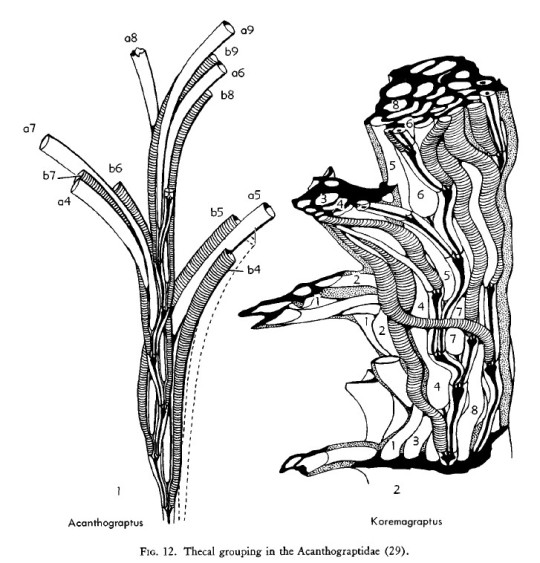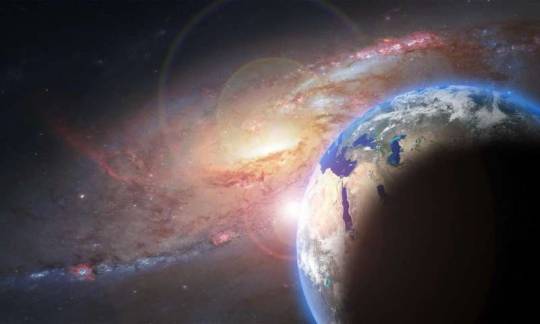#graptoloid
Text
Graptochrome, the Colored Colonial Pokemon!
Type: Electric/Flying
Pushed along by the currents, Graptochromes grab and filter plankton to eat. Their vibrant colors are to signal toxicity to predators, and a sign of fitness for mates.

#pokemon#fakemon#carbohs#natural history#paleontology#paleoblr#paleoart#evolution#graptolite#graptoloid#colonial organism
4 notes
·
View notes
Text
looking at references for a 3d reconstruction of a dendroid graptolite and uh. hello.

yknow i might just stick to graptoloids
#m#biblically accurate graptolite#the bible here being the treatise on invertebrate paleontology#which is close enough
3 notes
·
View notes
Text
Fossil record reveals changes in Earth's movement and rotation

Credit: CC0 Public Domain
Professor James Crampton from Victoria University's School of Geography, Environment, and Earth Sciences worked with a research team from GNS Science and the Universities of Wisconsin, California Riverside, and Chicago to examine the fossils of graptoloids, an extinct type of plankton that floated in ancient oceans. They found evidence that regular changes in the Earth's orbit and axis of rotation caused significant changes in both the evolution and extinction rates of these creatures.
"This research is very exciting, because the relationship between these orbital changes and extinction has never been shown before in truly ancient ecosystems," says Professor Crampton. "There's a strong debate in science about the impact on extinction and evolution of environmental change versus interactions between species (such as competition for food). With this study we can provide evidence of the impact of environmental changes on life on Earth. The evolution cycle changes we see occurred relatively soon after the first evolution of complex ecosystems, and during one of the greatest bursts of biodiversity increase in the history of life."
Normally, changes in Earth's orbit would be calculated by astronomers, Professor Crampton says, rather than palaeontologists.
"Astronomers can clearly calculate changes in Earth's orbit about 50 million years into the past, but beyond that point the calculations become impossible due to the effects of what we call chaos theory, which makes the calculations too complex to complete," Professor Crampton says. "But we can see the effects of changes in Earth's orbit in the fossil record, so we can provide information to astronomers that they previously couldn't find out."
Understanding the evolution of plankton is also extremely important to understanding life on Earth today, Professor Crampton says.
"Plankton living in the oceans today absorb a large amount of our CO2 output, keeping it out of the atmosphere," Professor Crampton says. "They are also an important part of the food chain. The evolution and extinction of plankton can have a large effect on marine life."
This research is only the beginning. Professor Crampton and his colleagues now plan to look deeper into the specific causes of extinction.
Read more ~ phys.org/news
6 notes
·
View notes
Link
Earth Professor James Crampton from Victoria Universitys School of Geography, Environment, and Earth Sciences worked with a research team from GNS Science and the Universities of Wisconsin, California Riverside, and Chicago to examine the fossils of graptoloids, an extinct type of plankton that floated in ancient oceans. They found evidence that regular changes in the Earths orbit and axis of rotation caused significant changes in both the evolution and extinction rates of these creatures. This ...
1 note
·
View note
Text
Changes in Earth’s orbit could explain rise and fall of ancient species
Changes in Earth’s orbit could explain rise and fall of ancient species
ew research published in Proceedings of the National Academy of Scienceslooks back 450 million years to reveal an important link between changes in our planet’s motion through space, and the extinction and evolution of life on Earth.A team of researchers, including paleontologist Michael Foote at the University of Chicago, examined the fossils of graptoloids, an extinct type of plankton that…
View On WordPress
0 notes